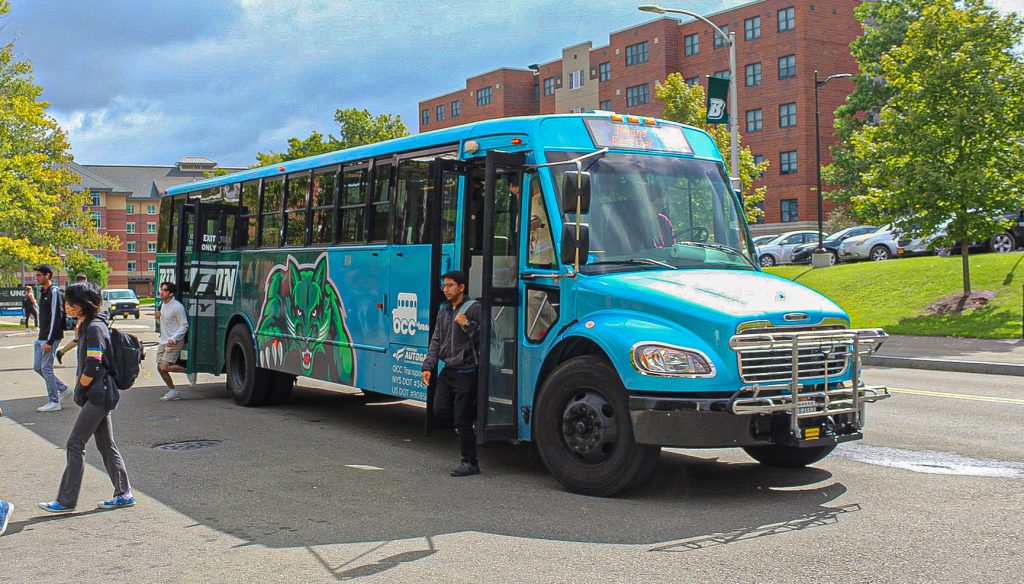Off Campus College Transport (OCCT), Binghamton University’s student-run, managed and driven bus service, has raised the minimum wage for its drivers from $15.20 to $18 an hour.
The increase was part of a two-year plan developed by the Student Association’s vice president for finance’s office in June 2022, when Daniel Croce, a senior majoring in business administration, took office. Student bus drivers earn “competitive” pay and paid New York state commercial driving license class B training. Requirements include being 18 or over, at least one year of licensed United States driving and having three remaining semesters as a student.
Croce, also the chairman and chief financial officer of OCCT, explained the motivation behind the changes.
“As always, OCCT’s mission is to expand service,” Croce wrote in an email. “The wage increase will work to attract more drivers … bringing the company compensation to industry standards for [BU] and helping our hardworking fellow students.”
He added that the service has faced a driver shortage since COVID-19 and that wages have long been below on-campus averages given the stresses and responsibilities of driving.
The raise was announced by Croce in the Sept. 26 meeting of the SA Congress, the legislative branch of the SA consisting of 35 elected student representatives. In the meeting, he called it the “biggest wage hike the company has ever seen.”
OCCT began in 1971 to make up for shortages with Broome County Transit when off-campus students paid 35 cents per ride. Off Campus College then donated $800 to purchase a school bus from a local school district.
The next stage of the two-year plan includes recruiting more trainers from the alumni pool to gain more certified trainers. Along with the wage increase, drivers will now receive an $800 training stipend, up from $400.
“OCCT is a very personal story for me, and I will never stop fighting for our drivers and students,” Croce wrote. “The services we provide are vital, and I will continue to be an advocate for laying the groundwork for long-term service expansion. I thank all of the drivers for their hard work and dedication to such an amazing community of passionate people.”
The additional funding came from the recently renegotiated contract between OCCT and the University. Croce said that the board approved his plan after it had been in discussions throughout last year.
Connor Young, a freshman majoring in biology, said the wage increase is well deserved and hopes the initiative will attract new drivers to apply.
“I guess increasing the salary encourages students to join as new drivers but also motivates them to perform well,” Young said. “I take the bus to travel off campus, and the drivers seem to be enjoying themselves. I mean, they are always on time and look like they are prepared for anything.”
Croce is also finalizing an initiative to provide trainee drivers with the option to receive two course credits through the Fleishman Center’s Career Development Centralized Internship (CDCI) — an internship program that provides credits counting toward graduation.
Paige Cooke, a junior majoring in English, expressed agreement with the plan to enhance driver benefits.
“The decision to implement this change shows a thoughtful and strategic approach to addressing the driver shortage,” Cooke said. “As a student myself, I have taken the bus countless times and never once had a bad experience.”
Croce described his long-term vision for the future of OCCT.
“My [two]-year plan has focused on setting the company up for success in the long run,” Croce wrote. “Long after I leave my role, I want OCCT to be in a position to better serve the student body.”



